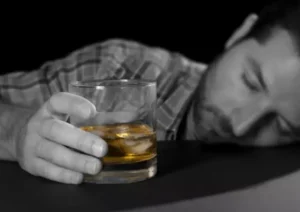What Are The 5 Addiction Stages?

The process of developing addiction, in this case, tends to occur over a series of stages and, like other chronic illnesses, often turns into a cycle of addiction, treatment or abstinence, and relapse. Understanding the profound impact addiction has on families is the first step in addressing the challenges it poses. From recognizing cycle of addiction the signs to implementing coping strategies, it is essential for families to engage in comprehensive recovery approaches, leaning on available educational resources and support systems. Building resilience within family structures and fostering supportive environments not only aids in recovery but also breaks the cycle of addiction, leading to healthier future generations.
How to Overcome Negative Thinking Patterns in Recovery
Studies indicate that children of addicted parents may face ongoing emotional and developmental issues, including increased rates of anxiety, depression, and difficulties in forming healthy relationships. These changes can provoke feelings of fear, anger, and helplessness in family members who witness their loved one’s decline. Discover the characteristics of best alcohol treatment centers to empower your recovery journey effectively. Discover expert strategies on how to solve withdrawal symptoms and effectively manage addiction recovery.
How to Maintain a Healthy Lifestyle in Recovery

This often leaves the person struggling with addiction feeling alone and unsupported. The four steps of the pathway to addiction include experimentation, regular or risky use, drug addiction, and dependency. Some people add relapse as the fifth or final stage due to the prevalence of relapse. While some risk factors, such as trauma, marijuana addiction stress, career, family history, or personal history, can increase your likelihood of going through drug or alcohol addiction, it can happen to anyone. During that time, a professional care team can give you the support you need.

How Samba Recovery Helps Clients Break the Cycle of Addiction
Dependence happens when the body starts to rely on the substance to function normally, either physically or psychologically. Dependence on substances can also be influenced by genetic factors, which, under certain internal and external conditions, can activate after exposure to addictive agents. You may also choose to find a mentor or experienced coach who can support and guide you through the difficult moments and show their belief in you and your recovery. They can also help to hold you accountable for staying free of your addictive substances. At Renaissance Recovery our goal is to provide evidence-based treatment to as many individuals as possible.
- You prevent relapse when you identify the warning signs of a relapse, avoid high-risk situations, and cut relapse short if it occurs.
- When you or someone you care about is struggling with addiction, it can often feel like you’re trapped in a never-ending cycle.
- The final stage of the cycle – addiction – is marked by a loss of control, compulsive use, and continued use despite harmful consequences.
- Examples of experiential therapies include art therapy, equine therapy, and adventure therapy.
Stand up to the scourge of intergenerational addiction and build a healthier, https://ecosoberhouse.com/ more fruitful, and more productive life for yourself. You’ll achieve nothing by expending energy on things you cannot control. The more you become wrapped up in negative and self-defeating thoughts, the more this impacts your frame of mind and mood.
People struggling with addiction need the guidance of trained professionals to help them recover. Rehab therapists or professional counselors can provide the help your loved one needs. Recognizing that there’s a problem and accepting help can be difficult for those struggling with addiction. Denial often creates a barrier to progress, making it challenging to take the first step toward recovery. Understanding how a simple act can lead to a catastrophic outcome requires us to examine the stages that lead to addiction.

Coping Thoughts Worksheets
The problem is however, that once a person has a substance abuse disorder, it is almost impossible to get out of the addiction cycle on their own. Quitting the drugs or alcohol altogether results in unbearable withdrawal symptoms, intense cravings for the substance, and a whole host of unpleasant emotions. Even if an addict receives an ultimatum from their spouse or other family members or they have an enormous amount of willpower, the reality is that the brain has changed. People who try to put a stop to their addiction problem will usually go through the agonizing addiction cycle, which not only doesn’t solve the problem but may actually make the addiction worse. The signs and symptoms of substance abuse can vary widely, involving both physical and behavioral changes. On the physical side, indicators may include bloodshot or glazed eyes, significant fluctuations in weight, and a noticeable neglect of personal grooming habits.
Many people try to stop their addiction multiple times before realizing they cannot do it without external help. Addiction happens when the individual cannot go without using their substance of choice or engaging in the activity. They feel trapped in their situation and experience problems in their lives due to the situation. People at this stage could lose their jobs, relationships, home, or health and still be unable to quit. At this point, the only way out for the individual is to seek professional addiction treatment. The second stage of the addiction cycle is when the person starts to use the substance on a frequently improper basis.

The length of time it takes to become addicted is unique to each person. Many of those who are in this stage are no longer using their substance to feel its effects, but because they feel it is necessary for them to be able to function. While it is paramount to address substance misuse, it does differ from addiction. Even if an individual recognizes they would benefit from ceasing their use, in both misuse and addiction it becomes increasingly difficult to do so on their own.

